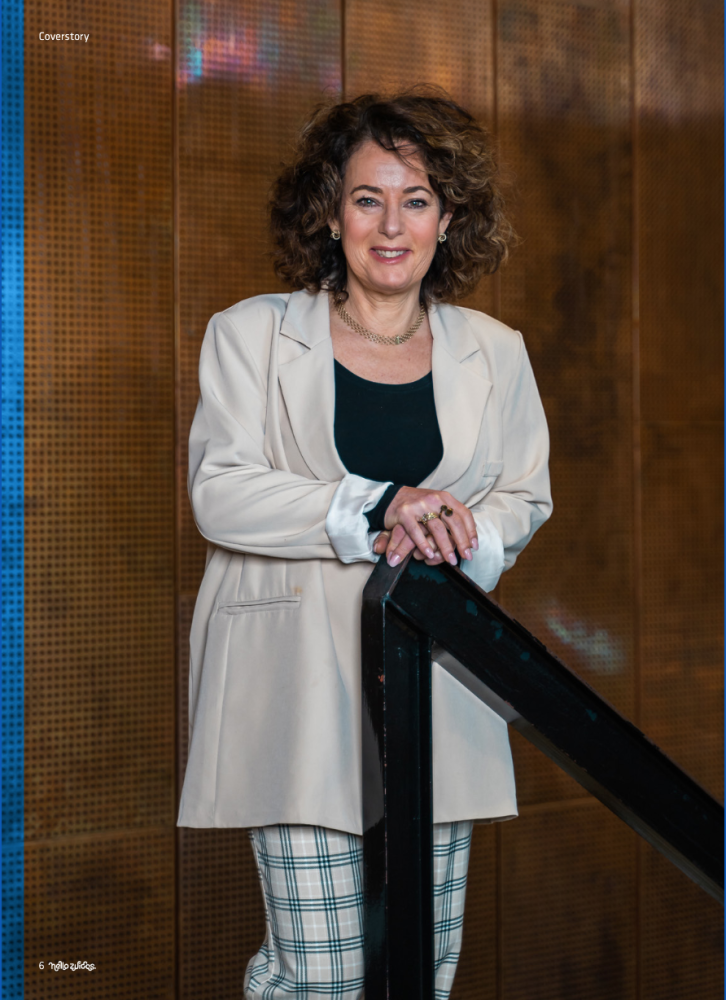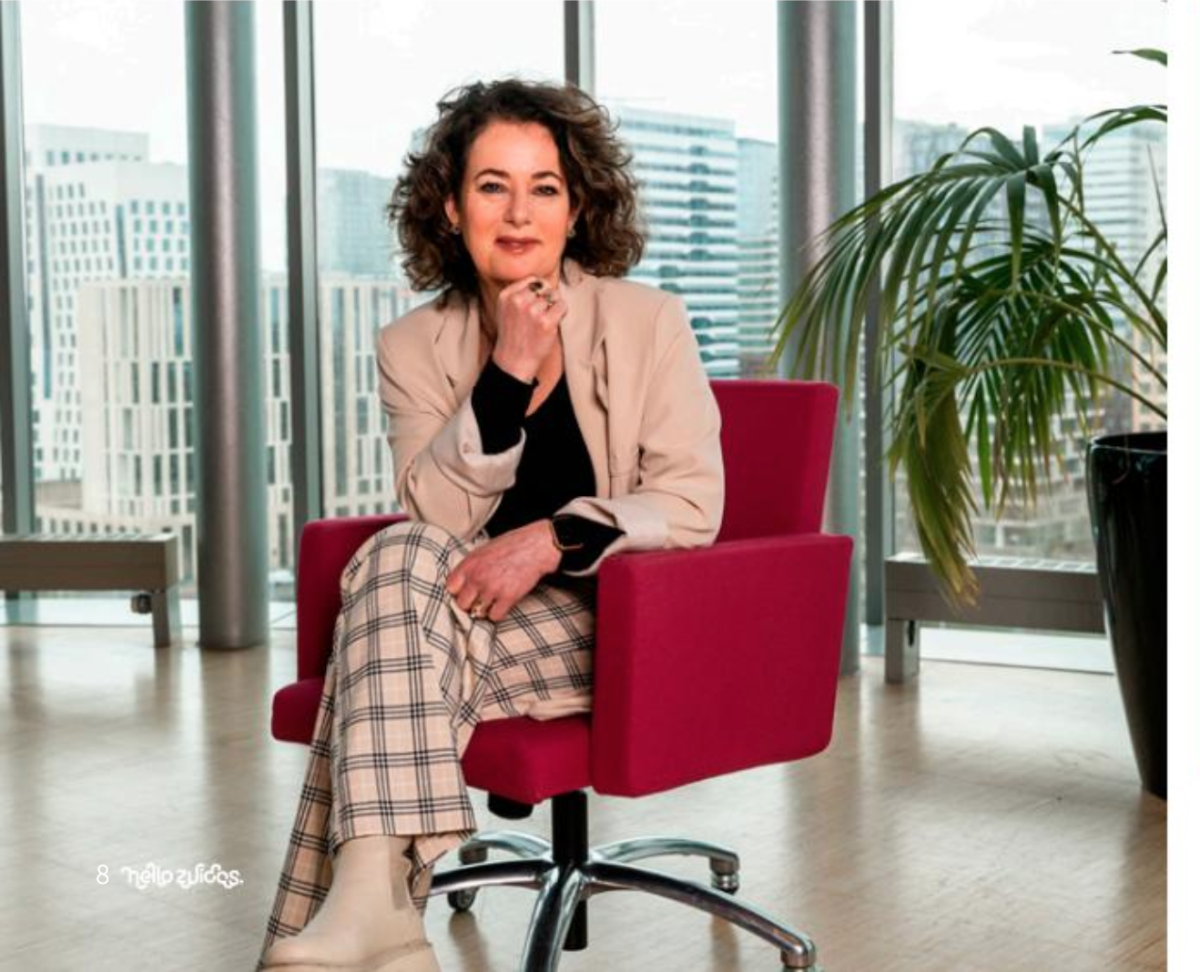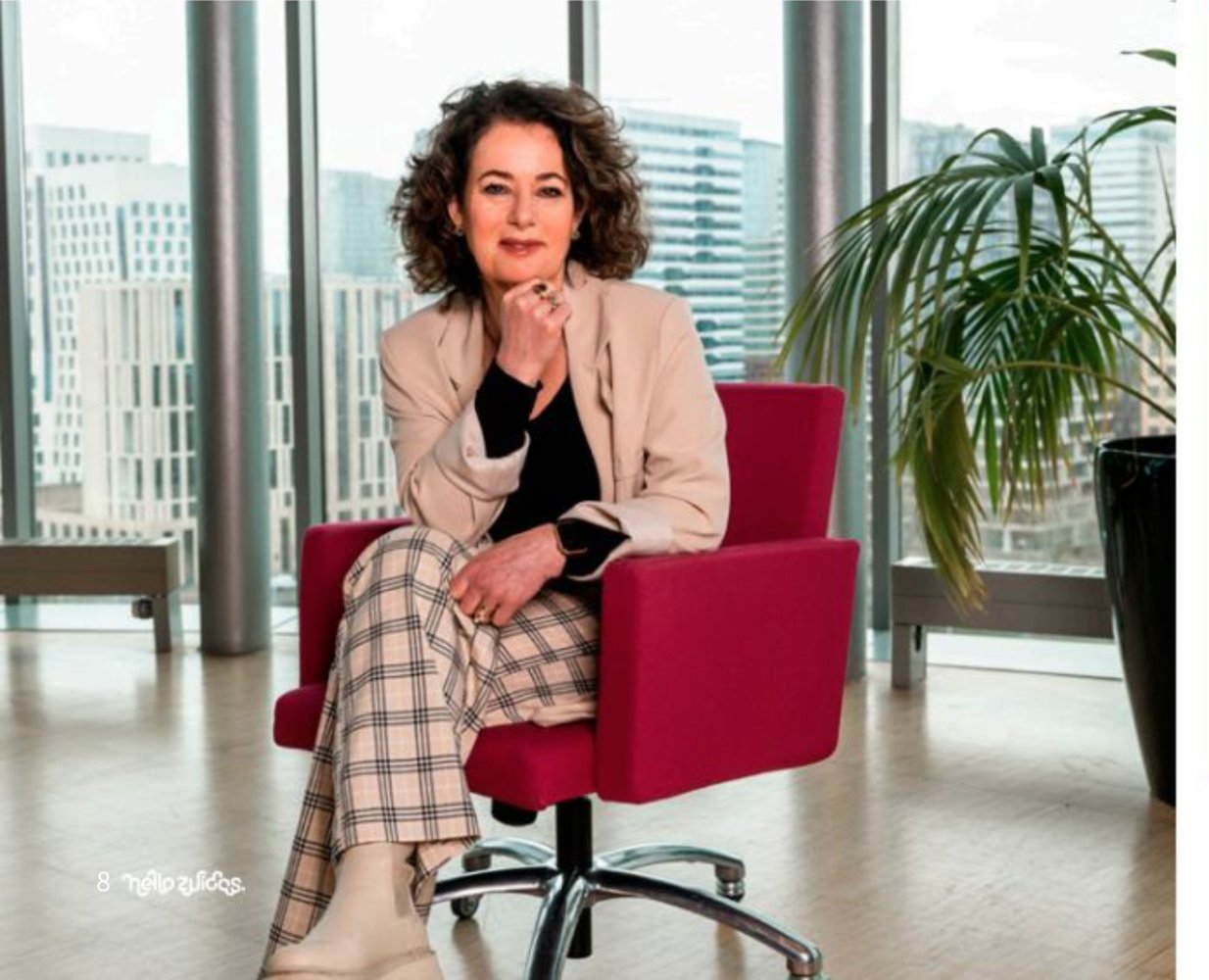Interview with Mirjam van Praag, president of the Executive Board of VU Amsterdam
“WE’RE CREATING A LARGE NETWORK OF PEOPLE WHO FEEL JUSTLY PROUD TO SHARE TIES WITH VU”
Mirjam van Praag - President of the Executive Board of VU As president of the Executive Board of VU Amsterdam, Mirjam van Praag can look back on three inspiring and educational years. She enjoys leading the university and mapping a direction for its future, which she does with a team of people within the organization. As well as fostering a shared purpose, their combined efforts genuinely improve the direction the university sets, Mirjam stresses. In a large organization like VU, knowledge and understanding tend to be compartmentalized in departments or domains, or in people with specific experience or research expertise. The Board can’t know everything, Mirjam says, and she considers it a privilege to lead and represent VU Amsterdam together with her Board colleagues. “These people and our shared love for VU and all it represents are what make this job so gratifying. As you can see, I’m very enthusiastic about it.”
Recently, you posted a piece on LinkedIn, discussing the difficulties universities face due to underfinancing and calling for a structural € 1.1 billion investment. What’s going on, and would be the solution, in your view?
“In the past twenty years, universities have seen tremendous growth in student numbers, whereas government funding hasn’t kept pace. As public institutions, we to a large extent rely on that public funding, and we have to keep on admitting students. Now that budgets have become so tight, we’ve not been able to invest enough, leaving our academic staff far less time for research and valorization than they had twenty years ago. This is a shame, a real loss even, because that’s what defines the power and impact we have in society. Fundamental and applied research are at the root of all innovation. So, the government is basically robbing itself, since investments in education, research and valorization repay themselves in spades. The solution, to my mind, is a new government that invests in universities, and more collaboration with industry and the regional ecosystem to jointly invest in research and valorization.”

VU Amsterdam is part of Zuidas and very much integrated in the district. How would you describe your relationship with companies here?
“We feel deeply connected with companies in Zuidas. We’re training their workforce and managers. With ‘VU for Professionals’, we’re also providing lifelong learning for leaders and thinkers in Zuidas, in a programme that unites scientific values with societal and personal values. As well as generating specialized knowledge, our academic expertise helps us to better understand the role of the professional as a human being and a citizen. At the same time, we’re drawing new insights from practitioners to feed our own research and education. It goes both ways. It’s also important for us to be an inspiring place where enterprising and innovative members of the VU community in Zuidas can base their startups and scaleups and conduct directed research in partnership with companies. An example would be the one with the Amsterdam UMC, in Life Sciences & Health, which has come about since the arrival of the EMA. There’s still too little of this, and our region is missing out.”
What challenges lie ahead for your university in the coming years?
“We’re a stellar university that excels on so many fronts, while at the same time we’re accessible and diverse. Our ‘Mixed Classroom’ model means students are exposed to more perspectives and are better educated. Diversity also fuels our creativity. VU can be overly modest – that’s the legacy of the old Protestant, Calvinistic work ethic. Our challenge lies in showing our strengths as a university: to students, to alumni and to industry and government as potential partners. That’s how we can become connected and create a large network of people who feel justly proud to share ties with VU - such as alumni who keep coming back to learn more or, as managers in business, to partner with us as Deloitte has done on robotization.”
VU is getting ready to roll out a momentous project called ‘Sapiens’. This wholly new concept will seek to accelerate sustainable transformation through provocative exhibitions, workshops and labs, and through collaboration among young talent in science, government, industry, charities and the creative economy. All for a better planet. You need one more partner to come on board. Can you tell us more about Sapiens? And about what you’re looking for in a partner?
“Human activity in the Anthropocene has led to major, complex global problems. Now, human ingenuity is needed to address those problems. Sapiens will be doing this from the sustainable Valley building in the middle of Zuidas, a very ‘anthropocene’ kind of place. It’s an initiative of Naturalis, VU Amsterdam and Valley developer Edge Technologies, and we’ve already got a number of partners in and outside Zuidas contributing on a project basis. Sapiens is a splendid example of collaboration and will be an engine for change as well as an incubator for sustainable development. By lobbying for urgent societal issues and activating young professionals and academics from all disciplines and a whole spectrum of sectors, Sapiens will create critical momentum to develop integrated and systemic solutions together. Alongside all the organizations already involved, we’d love to find one more ‘founding sister’ – a company or group of companies, a knowledge institution or a public entity – to help us put young people in charge of solving these challenges.”

What more do you want to discover, learn and never tire of reading about?
“I’ve been studying business enterprise for thirty years. And as a professor I’ve been teaching it since 2005 at universities here and abroad. I can never get enough of reading and learning about entrepreneurship, or of researching it. That combination is very exciting to me. VU is committed to entrepreneurship as a means of embedding knowledge through partnerships in Zuidas and elsewhere. How can we make sure that these partnerships flourish? Our strength lies in a combination of three key elements: first, a solid scientific basis, second, a focus on relevant societal issues such as sustainability, diversity and digitization and, third, personal development. We’ve noticed that this appeals to companies that are committed to combining economic objectives with societal contributions. They’re increasingly focused on investing in talent, which is about working out how to connect someone’s personal drive to their role within an organization. How can universities best help with that? Doing this kind of research, reading about it – I think I’ll never tire of that.”
Is there anything else you’d like to say to readers of Hello Zuidas?
“I’d like to extend an invitation! We can do so much for each other. VU Amsterdam is invested in entrepreneurship. The partnerships I mentioned earlier aren’t only about education but also about developing knowledge and products together. We know that partnerships between the fields of science and practice can accelerate innovation. You do have to invest in understanding each other’s perspectives. And with the internal organization of classical universities not being geared towards enterprise, it calls for quite a few adjustments on our part. But all of us at VU are excited to be part of it.”
